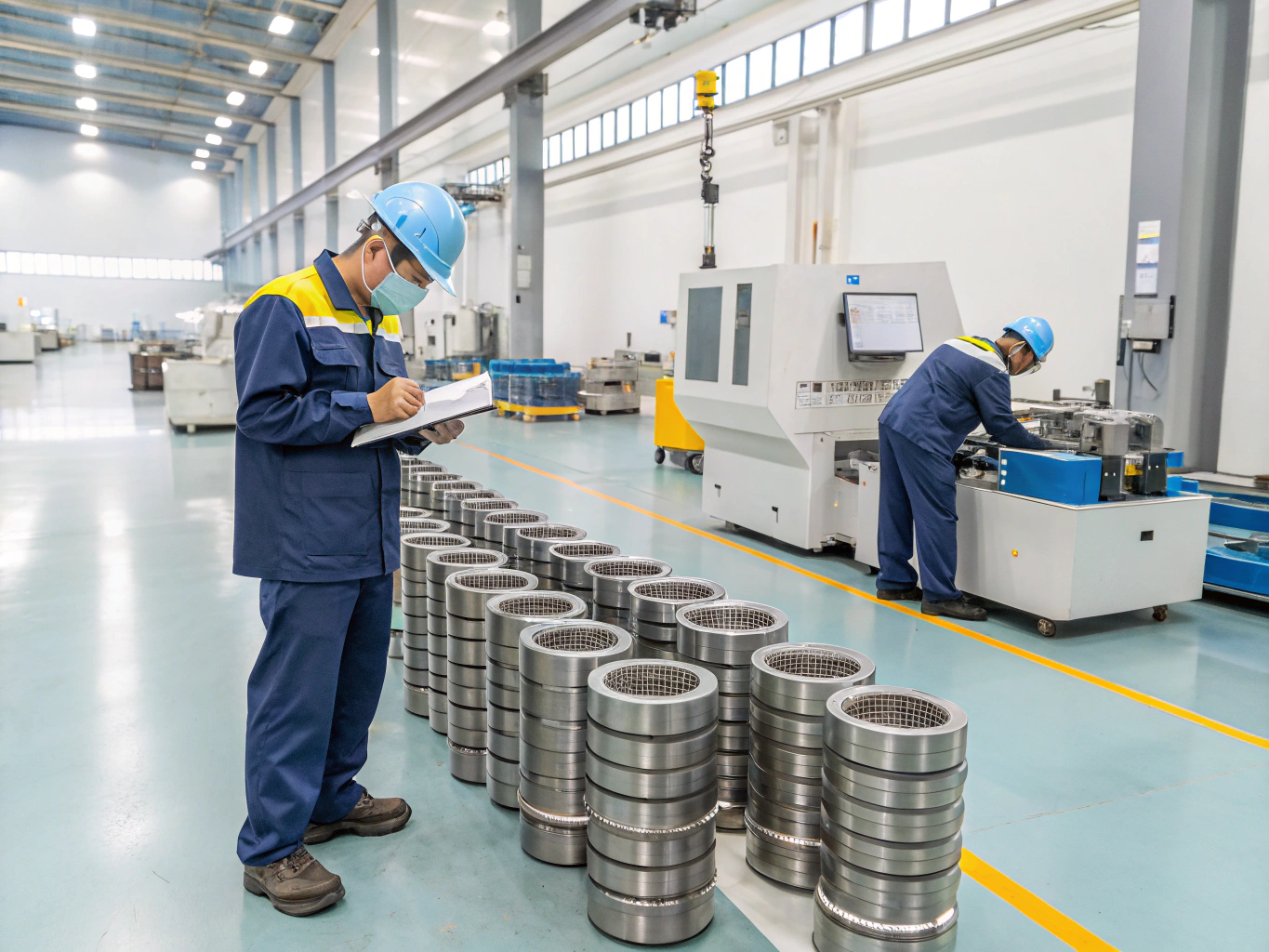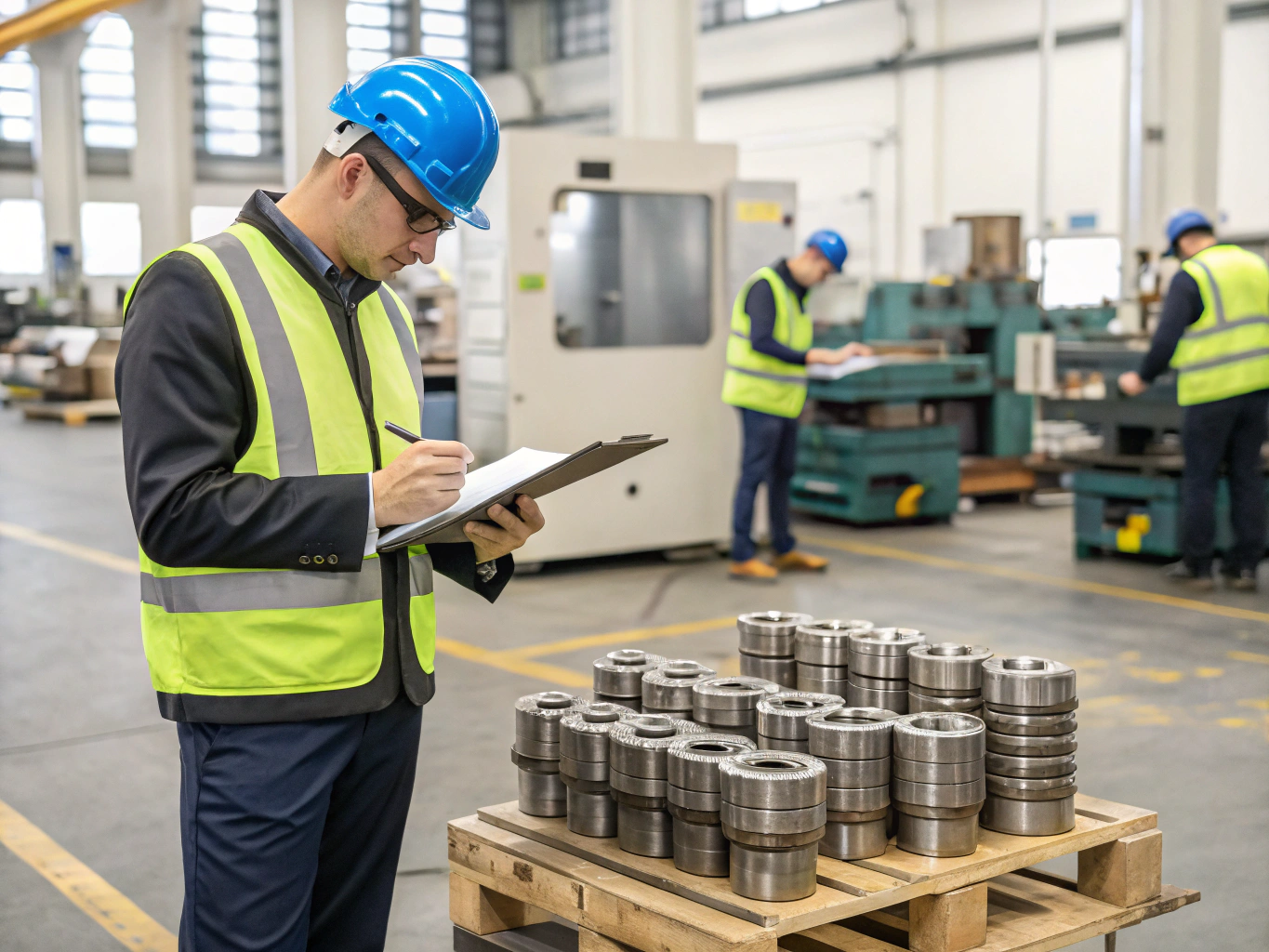
Finding reliable overseas suppliers for custom steel parts1 used to stress me out. I’ve dealt with late deliveries, poor communication, and inconsistent quality. I know how much it can affect your business when a supplier doesn’t deliver as promised.
The best way to find reliable overseas suppliers for custom steel parts is to use trusted B2B platforms2, verify supplier certifications3, review customer feedback, and conduct direct communication like video calls to confirm their capabilities. Following these steps reduces risks and ensures you work with capable and trustworthy manufacturers.
When I started DEWIN, I realized how important it is to have a clear and effective sourcing process. In this article, I’ll show you how we help clients find dependable overseas suppliers and how you can do the same.
Which Online Platforms Are Best for Finding Suppliers?
I’ve spent hours searching for suppliers. Many platforms make big promises, but not all deliver quality results. I found that using reliable sourcing platforms saves time and reduces risks.
The best online platforms for finding reliable suppliers of custom steel parts are Alibaba, Made-in-China, and GlobalSources. These platforms offer verified suppliers, customer reviews, and trade assurance to protect buyers.

When you are sourcing custom steel parts overseas, the first step is choosing the right platforms. This choice matters because these platforms act as a filter. They screen out unqualified suppliers.
Here’s a deeper look at how to use them effectively.
Key Steps to Succeed on B2B Platforms
1. Define Your Requirements Clearly
Make sure your search terms are specific. Instead of typing “steel parts,” try “custom precision CNC machined steel parts.”
2. Filter Verified Suppliers
Most platforms have verification systems:
- Alibaba: Look for "Gold Supplier," "Assessed Supplier," and "Trade Assurance."
- Made-in-China: Focus on "Audited Supplier" tags.
- GlobalSources: Prioritize suppliers verified by third-party inspectors.
3. Evaluate Supplier Profiles
Check:
- Factory location
- Year of establishment
- Export history
- Product range
4. Send Requests for Quotation (RFQs)
An RFQ helps you compare suppliers fast. Include:
- Drawings or specifications
- Quantities
- Required certifications
- Expected delivery dates
Example: Supplier Evaluation Table
| Supplier Name | Verified Status | Years in Business | Main Products | Response Time |
|---|---|---|---|---|
| ABC Steel Co. | Gold Supplier | 10 | Custom CNC steel components | 12 hours |
| XYZ Metals Ltd | Audited Supplier | 8 | Stamped and machined parts | 24 hours |
Taking these steps saves you time and helps you avoid unreliable suppliers.
What Certifications Should a Supplier Have?
At DEWIN, certifications are a key factor when we choose suppliers for our clients. Without them, it’s hard to trust the quality of their operations.
Reliable suppliers of custom steel parts should have certifications such as ISO 9001 for quality management and ISO 14001 for environmental management. These certificates ensure the supplier follows industry standards.

Certifications show that a supplier has a formal process in place for quality and environmental controls. They also provide proof that an independent organization has audited them.
Here’s why that matters for custom steel parts.
Important Certifications for Overseas Suppliers
1. ISO 9001 – Quality Management System
This is the baseline certification for any serious manufacturer. It ensures:
- Standardized production processes
- Clear documentation
- Continuous improvement practices
2. ISO 14001 – Environmental Management
If your clients care about sustainability, this matters. It shows the factory manages its environmental impact.
3. IATF 16949 – Automotive Quality Management
This applies if you source parts for automotive products. It ensures:
- Strict defect prevention measures
- Continuous improvement of processes
- Customer satisfaction focus
4. RoHS and REACH – Compliance for Hazardous Substances
These are required for parts used in Europe and the U.S. They make sure the materials don’t include restricted substances.
Certification Validation Checklist
| Step | Action |
|---|---|
| Request Certificates | Ask the supplier for PDF scans of certificates |
| Verify with Issuer | Check the certificate’s serial number on the issuer’s website |
| Confirm Expiry Dates | Ensure certifications are current |
Verifying certifications ensures your suppliers meet global standards and reduces the risk of poor-quality products.
How to Assess Supplier Reliability Through Customer Reviews?
In my early days, I trusted suppliers without doing enough homework. Reviews could have saved me a lot of trouble. Now, I never skip this step.
Assessing supplier reliability through customer reviews helps you avoid unreliable suppliers. Verified buyer feedback provides insights into quality, communication, and delivery performance.

Customer reviews give you an inside look at what to expect. They show how a supplier works with real clients, not just what they claim in their profiles.
Here’s how you can use reviews to assess supplier reliability.
How to Analyze Customer Reviews
1. Look for Patterns
Check if buyers frequently mention:
- Product quality
- Timely delivery
- Clear communication
2. Focus on Verified Buyers
Verified buyers are more trustworthy. Their reviews are more likely to reflect genuine experiences.
3. Consider the Review Dates
Recent reviews show the supplier’s current performance.
Example: Review Summary Table
| Review Aspect | Positive Signs | Red Flags |
|---|---|---|
| Product Quality | Consistent quality, meets specifications | Frequent defects, wrong specs |
| Delivery Time | On-time shipments, good packaging | Late shipments, missing items |
| Communication | Fast replies, problem-solving | Slow or unclear responses |
4. Explore External Sources
Don’t rely only on platform reviews. Check:
- LinkedIn recommendations
- Google reviews
- Trade show reports
Assessing supplier reliability this way helps you avoid costly mistakes and find long-term partners.
Should You Conduct Video Meetings to Verify Suppliers?
When I couldn’t travel during the pandemic, I started using video calls to meet suppliers. It made a huge difference. I could see their factories, machines, and teams in real time.
Conducting video meetings with potential suppliers is an effective way to verify their facilities, production processes, and communication skills without visiting in person.

A video call helps you confirm if what a supplier claims matches reality. You can ask for a live tour of their factory and see how they operate.
Here’s how to make video meetings work for you.
Preparation for Video Supplier Audits
1. Send a Clear Agenda
Give them a list of what you want to see and ask:
- Factory entrance
- Workshop layout
- Machines in use
- QC stations
2. Meet the Key People
Request to meet:
- Production managers
- QC supervisors
- Sales team leads
3. Review Key Documents Live
Ask them to share:
- ISO certificates
- Quality reports
- Test reports on recent products
Example: Video Audit Checklist
| Item to Check | What to Look For |
|---|---|
| Workshop Cleanliness | Organized and clean workspaces |
| Machine Condition | Modern, well-maintained equipment |
| QC Process | Staff following documented procedures |
| Employee Skills | Workers performing tasks accurately |
Follow-Up After the Call
- Send a summary of your observations
- Ask for clarification on unclear points
- Plan a second call if necessary
Video calls save time and money while giving you better control over supplier selection.
Conclusion
Reliable overseas suppliers for custom steel parts are out there. Use trusted platforms, verify certifications, read customer reviews, and arrange video calls to find the right partner.
-
Explore this resource to learn effective strategies for sourcing high-quality custom steel parts and avoid common pitfalls. ↩
-
Discover the best B2B platforms that can connect you with verified suppliers and streamline your sourcing process. ↩
-
Understanding the significance of supplier certifications can help you ensure quality and compliance in your sourcing process. ↩

